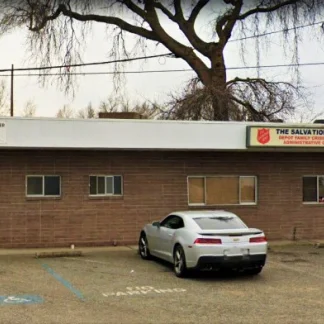Pathways Alcohol and Drug Treatment
Pathways Alcohol and Drug Treatment, located in Marysville, California, is an al...
The Salvation Army Family Crisis is located in Marysville, California. They provide outpatient alcohol and drug rehab services and mental health treatment services to families in need of support. They also provide emergency disaster services and transitional housing.
The outpatient program is suitable for individuals who do not need around-the-clock supervision. Individual therapy, group therapy, family therapy, couples counseling, referral services, housing support services, and worship services are provided. Individuals who need a higher level of care may be referred to a residential or inpatient behavioral health care center.
The transitional housing program is for individuals who are in a transition period of their lives. Individuals on the verge of homelessness, or who are homeless, will qualify for transitional housing. Individuals who need a safe and stable environment while undergoing treatment may also qualify for transitional housing.
The Salvation Army Family Crisis provides services at no cost. Individuals interested in using insurance to pay for other types of treatment needs should contact the insurance carrier because out-of-network benefits may vary from plan to plan and from treatment center to treatment center.
Contact us for more information: (530) 216-4530

Connect with Salvation Army - Family Crisis by calling their admissions team directly.
(530) 216-4530 Website Get DirectionsResearch clearly demonstrates that recovery is far more successful and sustainable when loved ones like family members participate in rehab and substance abuse treatment. Genetic factors may be at play when it comes to drug and alcohol addiction, as well as mental health issues. Family dynamics often play a critical role in addiction triggers, and if properly educated, family members can be a strong source of support when it comes to rehabilitation.
Group therapy is any therapeutic work that happens in a group (not one-on-one). There are a number of different group therapy modalities, including support groups, experiential therapy, psycho-education, and more. Group therapy involves treatment as well as processing interaction between group members.
Trauma therapy addresses traumatic incidents from a client's past that are likely affecting their present-day experience. Trauma is often one of the primary triggers and potential causes of addiction, and can stem from child sexual abuse, domestic violence, having a parent with a mental illness, losing one or both parents at a young age, teenage or adult sexual assault, or any number of other factors. The purpose of trauma therapy is to allow a patient to process trauma and move through and past it, with the help of trained and compassionate mental health professionals.
Group therapy is any therapeutic work that happens in a group (not one-on-one). There are a number of different group therapy modalities, including support groups, experiential therapy, psycho-education, and more. Group therapy involves treatment as well as processing interaction between group members.
Trauma therapy addresses traumatic incidents from a client's past that are likely affecting their present-day experience. Trauma is often one of the primary triggers and potential causes of addiction, and can stem from child sexual abuse, domestic violence, having a parent with a mental illness, losing one or both parents at a young age, teenage or adult sexual assault, or any number of other factors. The purpose of trauma therapy is to allow a patient to process trauma and move through and past it, with the help of trained and compassionate mental health professionals.
Trauma therapy addresses traumatic incidents from a client's past that are likely affecting their present-day experience. Trauma is often one of the primary triggers and potential causes of addiction, and can stem from child sexual abuse, domestic violence, having a parent with a mental illness, losing one or both parents at a young age, teenage or adult sexual assault, or any number of other factors. The purpose of trauma therapy is to allow a patient to process trauma and move through and past it, with the help of trained and compassionate mental health professionals.
Pathways Alcohol and Drug Treatment, located in Marysville, California, is an al...
Al Anon Marysville, located in Marysville, California, is an outpatient 12 Step ...
First Steps is a public rehab located in Yuba City, California. First Steps spec...
Therapeutic Solutions - Tharp Road offers intensive outpatient programs for indi...